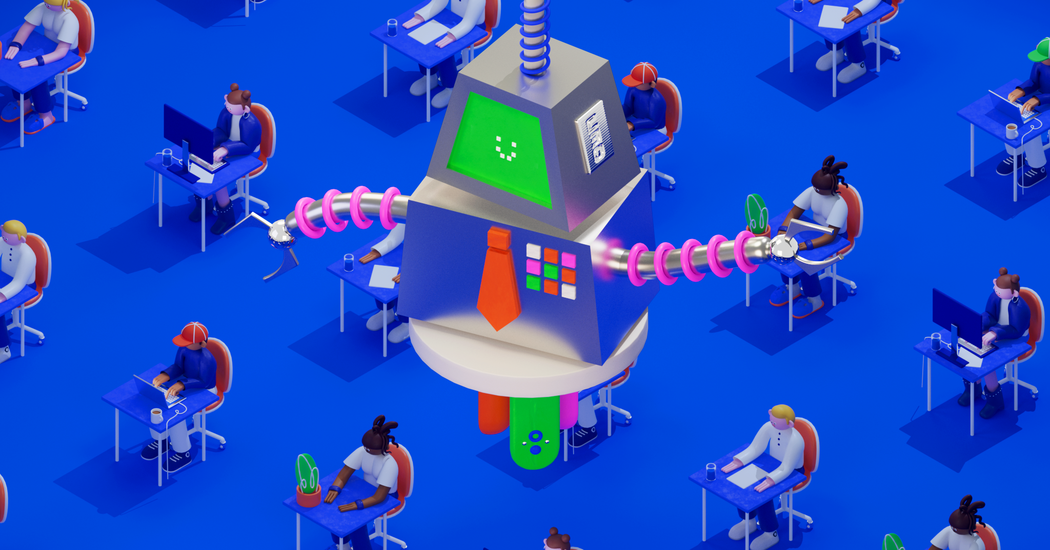
Chief executives are vulnerable to the same forces buffeting their employees. Leadership is important, but so is efficiency — and cost-cutting.
As artificial intelligence programs shake up the office, potentially making millions of jobs obsolete, one group of perpetually stressed workers seems especially vulnerable.
These employees analyze new markets and discern trends, both tasks a computer could do more efficiently. They spend much of their time communicating with colleagues, a laborious activity that is being automated with voice and image generators. Sometimes they must make difficult decisions — and who is better at being dispassionate than a machine?
Finally, these jobs are very well paid, which means the cost savings of eliminating them is considerable.
The chief executive is increasingly imperiled by A.I., just like the writer of news releases and the customer service representative. Dark factories, which are entirely automated, may soon have a counterpart at the top of the corporation: dark suites.
This is not just a prediction. A few successful companies have begun to publicly experiment with the notion of an A.I. leader, even if at the moment it might largely be a branding exercise.
A.I. has been hyped as the solution to all corporate problems for about 18 months now, ever since OpenAI rolled out ChatGPT in November 2022. Silicon Valley put $29 billion last year into generative A.I. and is selling it hard. Even in its current rudimentary form, A.I. that mimics human reasoning is finding a foothold among distressed companies with little to lose and lacking strong leadership.
Thank you for your patience while we verify access. If you are in Reader mode please exit and log into your Times account, or subscribe for all of The Times.
Thank you for your patience while we verify access.
Already a subscriber? Log in.
Want all of The Times? Subscribe.